Vanessa Kirby, Katherine Waterston, and director Mona Fastvold on exploring untold histories in The World to Come
GamesRadar+ and Total Film speak to the stars and director of new historical romance The World to Come
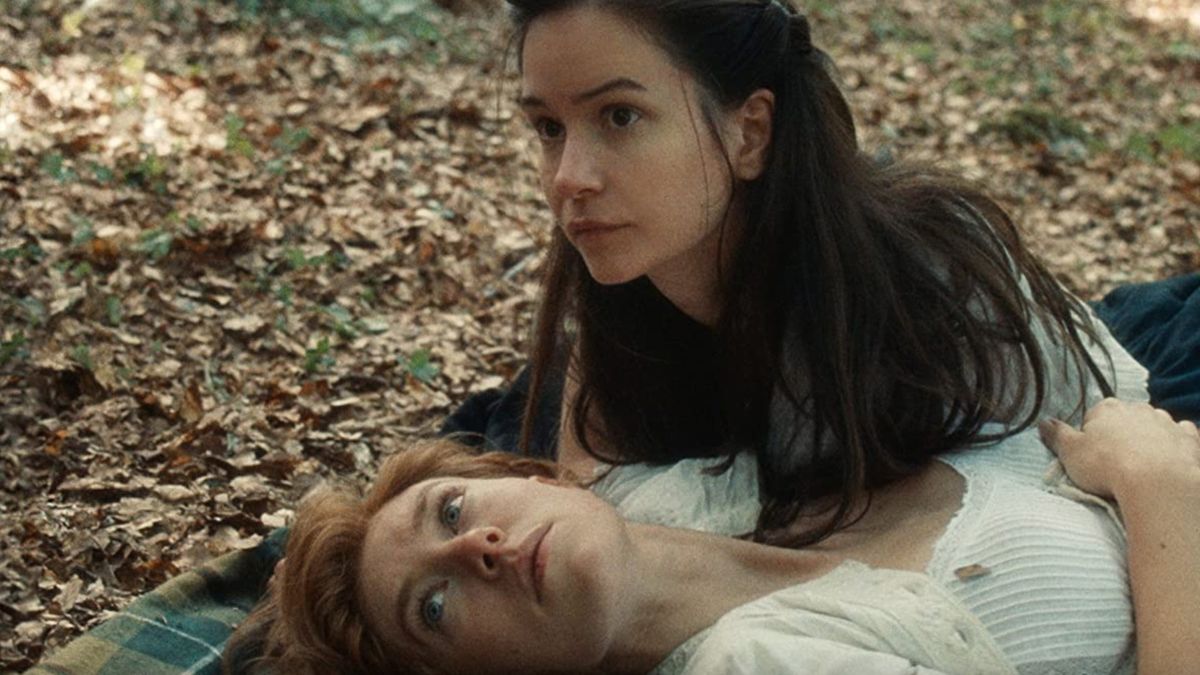
Loneliness and isolation have been pretty common themes in all of our lives over the past year, thanks to a pandemic that's kept us largely indoors and alone. The characters in The World to Come are farmers (and their wives), so they don't spend much time indoors and they're not entirely alone, either, but they're certainly isolated when the film begins against the harsh backdrop of the frontier of 19th Century upstate New York.
"I think that I feel compelled to look at the present through the lens of the past," director Mona Fastvold tells GamesRadar+. "And I think that one part of it, for me, is that you feel compelled to claim a part of history and say, these stories have always happened… And then I think it's really hard to tell a story with all this technology that we interact with, right now, I don't know how to do that… So I feel very drawn to the past also, because perhaps, to me, it feels like a more direct and pure way of portraying a human experience like that."
The World to Come follows Abigail (Katherine Waterston), the unhappy wife of farmer Dyer (Casey Affleck) as they struggle to mourn the death of their young child and make a living from their land during a bleak winter. Then, Tallie (Vanessa Kirby) and her husband Finney (Christopher Abbott) move into the neighboring farm, and everything changes for both women as friendship, and then romance, begins to blossom.
Feeling seen and heard
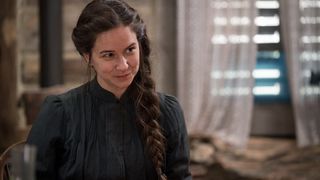
A lot of Abigail's loneliness stems from the fact that her sense of purpose revolves around her husband, especially since the loss of their only child. "On the first page [of the script], Abigail is described as an asset to her husband, and I thought, of all the words that could be used to describe the relationship, how interesting and rich that word is," Waterston says. "And I think that was the first thing that really got my mind going. What does it mean to be an asset? Is there a positive connotation to this word and quite a negative one as well? Is somebody deeply dependent on you in all ways? Or are you property, essentially? Just another tool?"
Tallie, however, is more headstrong, although this doesn't always work out in her favor. "I loved how revolutionary Tallie was," Kirby tells GamesRadar+. "I often thought about how there must have been so many women at that time that were capable of so much more than that and wanted to express themselves. And they were never able to, both in love and choices that they had and, you know, self-expression or creative expression. I think [the movie] kind of represents that sort of fleeting moment where two women felt seen and together and heard and alive, you know, and joy, really."
The movie was filmed on location in Romania, in a landscape that's just as desolate and beautiful as the one seen on screen in the movie. "I was so grateful it wasn't in a studio, because you just never could replace the feeling of sadness and the isolation and then the geography between places and the loneliness," Kirby says. "We had to quite literally hike to set every day. And so we really felt like we were out in the wilderness a bit, you know, like the people at that time on that frontier would have felt, like sometimes there was miles and miles between people and all you have is the home that you were kind of chained to, really, and the economic arrangement between two people in a marriage at the time."
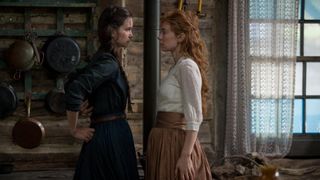
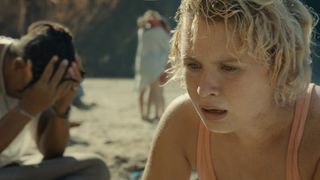
Much of the movie's script is made up of Abigail's diary entries, which we hear via a voiceover. "I think it's another sign of great writing when people dare to try to present inarticulacy in films because of course, we are all battling with that," Waterston says. "But it's quite hard to communicate it on film, particularly the notion that the exterior might appear to be quite simple and limited and inner worlds can be simultaneously active and rich and full of feeling. And so, obviously, the use of voiceover really helps with that."
Sign up for the Total Film Newsletter
Bringing all the latest movie news, features, and reviews to your inbox
She adds: "So often, though, in films, a voiceover is used as a kind of crutch or tacked on something to help explain confusing bits that were underwritten in the script. And this was so deeply interwoven and really just so carefully worked out, trying to strike a balance between this silence in the scenes with the other actors and then this rich inner world… I loved playing those scenes because I find limitation and inarticulacy and the human struggle to connect so rich and fun to play with, you know, and a wonderful challenge to try to figure out, how can I reject someone or invite them in without any words?"
There are plenty of moments in the film without words, and that's when the movie's score comes into its own. Fastvold says she worked closely with composer Daniel Blumberg as soon as she received the script. "He came on set and worked while we were shooting for a bit and really kind of was inspired by some of the natural sounds in the landscape," she says. "And Katherine [Waterston] did early recording sounds, like scrap recordings, of all of the voiceover. So Daniel was working with that, because I really wanted the score, the sound design, and the voiceover to be completely married and woven into one another."
The tip of the iceberg
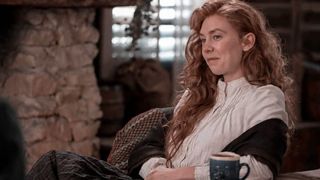
I think we're in an interesting moment where we're reflecting a lot on our untold histories
The World to Come isn't the first movie to show two women engaging in a romantic and sexual relationship in a historical setting, and comparisons – albeit arguably unfair or misguided comparisons – may be drawn between this film and Francis Lee's Ammonite or Céline Sciamma's Portrait of a Lady on Fire. "I don't know why these sort of trends happen. But I think we're in an interesting moment where we're reflecting a lot on our untold histories," Waterston says. "And I think there was probably a false notion some 20 years ago or something that, oh, we would tell these stories if they existed, kind of this real lazy cop-out especially about unrecorded histories."
She adds: "In my research, I encountered diary entries from medieval nuns, love letters from medieval lesbian nuns. So the notion that these sorts of stories are fantasy is nonsense, and I think the culture is recognizing, certainly in the arts, we are at the tip of the iceberg of exploring our pasts and our histories in a complete way, in a rich way, you know, beyond the perspective of the white man."
If this is the tip of the iceberg, there are undoubtedly depths below still to explore, but Abigail and Tallie's story is more than worthy of being brought to the surface. The World to Come takes the harshness that so often accompanies the pursuit of the American dream and shows us how the connections we make with others can soften that harshness – evergreen themes that Fastvold artfully conveys through the lens of 19th Century rural New York.
The World to Come is released in UK cinemas on July 23. It's currently available to watch on demand in the US.
I’m an Entertainment Writer here at GamesRadar+, covering everything film and TV-related across the Total Film and SFX sections. I help bring you all the latest news and also the occasional feature too. I’ve previously written for publications like HuffPost and i-D after getting my NCTJ Diploma in Multimedia Journalism.
Most Popular


